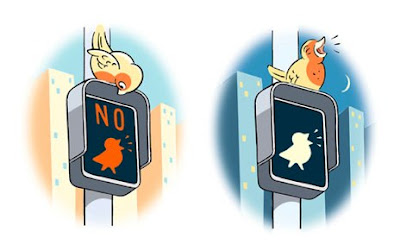A blog devoted to exploring the "all-sound music of the future" predicted by John Cage.
Wednesday, December 7, 2016
A Caribbean Education
So, I live in the Caribbean.
There's a lot of great music here.
Which means there's a lot I need to learn about the great music here.
Specifically, I really need to brush up on my genres. There's a distinct difference between ska, mento, rock steady, reggae, dancehall and the R&B that comes out of these islands, and I'm definitely sensing a learning curve. Not to fear- I have a source.
I work with a 60 year old Rasta man who has an extensive collection of music and an encyclopedic knowledge of artists, albums, and the evolution of Jamaican musical styles. He's not a musician. He's a coffee farmer.
Yesterday, the area farmers had a social gathering. We cooked outside, traded ant-bite stories and played dominoes. All the while, this coffee farmer friend of mine, played DJ. As he lined up the tracks, pulling from his voluminous discography, I was able to begin to identify the differences in tempo, rhythm and general sound of these musical genres. It was neat to finally be able to piece them out, as I heard them side-by-side. That said, I've got a long way to go before I can comfortably say I have an understanding.
What better way to keep my thoughts straight, I thought, than to record by observances? And so, I've resolved to keep a record here- as time and internet connection allows- of my new musical experiences and all the questions that manifest alongside them. Is the categorization of "genre" helpful in this case? Is genre just reflective of musical style development over time? Are these new genres, then, only helpful insofar as placing the music in history? Is it same music played on different instruments? And what about all these covers and mixes?
Then there's the different culture around music in a Caribbean country, and the influence of that culture on the music itself. Does the knowledge that listeners will want to be able to break into song on the public bus influence your creative process? What about the mostly-concrete or outdoor listening acoustics? And perhaps most pertinent: what is the role of all these annoying DJs and their alter egos?
I sense an adventure.
Image: "Dance Hall Hobby" album cover, 2012, by Mr. Williamz http://jahtari.org/music/JTR12.htm
Friday, September 9, 2016
Here We Go Again
So, humans like patterns. We just can't get enough of some of them.
We latch onto certain patterns we like and subconsciously use them over and over- leading to the perennial problem of originality, copyright and ensuing legal action.
An intriguing article over on The Pattering highlights what the author has dubbed "The Millennial Whoop," or a "glorious obsession with the melodic alteration between the fifth and the third" note. It's a musical pattern that's begun to characterize the generation's pop songs, and the piece conveniently provides links to the abundant examples.
Also curious is the application of thus very same pattern across cultures, and in the common practice of "baby talk" when adults to infants.
Check it out.
THE MILLENNIAL WHOOP: A GLORIOUS OBSESSION WITH THE MELODIC ALTERNATION BETWEEN THE FIFTH AND THE THIRD
Saturday, August 13, 2016
Whale Song and Wavelets
American engineer Mark Fischer recorded whale songs and dolphin calls. Then he transformed the recordings into visuals using a mathematical tool called "wavelets."
Here are his pretty pictures:
See more here: http://www.telegraph.co.uk/news/science/picture-galleries/6644756/Whale-song-art-dolphin-calls-turned-into-kaleidoscopic-patterns-using-wavelets.html
Here are his pretty pictures:
See more here: http://www.telegraph.co.uk/news/science/picture-galleries/6644756/Whale-song-art-dolphin-calls-turned-into-kaleidoscopic-patterns-using-wavelets.html
Friday, August 12, 2016
Same Old Song: Humans Are Too Loud, and It's Ruining Everything
I know I've written about this before. A few times. Quite a lot, actually.
But it bears repeating.
Humans make a lot of noise.
And it's messing things up for other animals.
The body of research suggesting that anthropogenic noise pollution has negative impacts on everything from birds, frogs, fish, insects, prairie dogs to even organisms without ears, is steadily mounting. Increasingly, human noise is being recognized as a form of habitat degradation, while at the same time we're uncovering the acoustic environment’s importance to wildlife — to behavior, communication and ultimately survival.
The fossil record reveals that animals developed ears before vocal chords. This is basically the paleontological equivalent of your grandmother reminding you that you have two ears and one mouth. Hearing is the universal alerting cue, an essential sense that’s never been seen to disappear in any species. From a zoological, evolutionary perspective, hearing is far more universal than vision, suggesting it's very important to a species' survival.
And that's where the human-generated cacophony becomes a problem. When animals' acoustic environments are altered, they must respond in order to function in a new sound environment. Animals respond to noise in many different ways, and scientists are just beginning to understand the ramifications. Some responses are behavioral and can be observed in changes in species' communication. Others show up in where animals choose to make their habitats, how successfully they fend off predators (or not), or their ability to hunt (or not) — or in subtler impacts on mating, reproductive success and physiological stress.
And, of course, as with all changes in an ecosystem, how stress is handled by one species affects all the other species in the system. Cascade affects can impact how and whether plant species are pollinated, their seeds dispersed, their populations kept in check by herbivores.
Birdsong decreases in complexity. And that's sad. That is sad, people.
Basically, human noise creates environmental stress, and animals either have to adapt, or die.
Which is a problem.
On the bright side, noise pollution is an easy problem to immediately clean up. Unlike other nasty pollutants with half-lives of millions of years, noise pollution can be made to disappear. Just like that. Really.
On the other hand, humans are still going to be all over the place, probably doing things that make noise. Noise cloaking technologies, sound-sensitive highway designs, even speed limits for boats (to protect poor whales' ears) can be developed and implemented to address this problem. But like all problems, the first step to recover is acknowledging that the problem exists.
It's the very ephemeral nature of sound, and the ease with which such a pollutant can be "cleaned up" that keeps it from being a priority when developing policy. Research on the impacts of anthropogenic noise on wildlife has only gained traction in the last 10 years. Until we can admit that the noise humans produce — from road traffic, airplanes, boats, fossil fuel extraction, mining, military activity, home air conditioning and other sources — is a widespread pollutant, we can't begin the process of cleaning it up.
*author jumps of soapbox and exits stage left*
Image by Chris Gash @ http://www.chrisgash.com/
Wednesday, June 29, 2016
Soundscapes in America's National Parks
Read this wonderful piece on the work of researchers recording the natural sounds of national parks all across the U.S. With more than 70 soundscapes so far, the scientists share that escaping anthropogenic sound is difficult (big surprise), and that, in some cases, the presence of human sound has had impacts on the ecosystem. In fact, certain wild sounds are becoming harder and harder to find, either due to human-made sound pollution itself, or the other impacts human development has had on the natural environment.
I'm reminded on John Cage's stance on conservation of natural sounds, and on the sonic opportunities we miss if we fail to save them. One of the researchers who has been recording soundscapes for the project agrees. "If we start to lose sounds of wilderness, we start to lose a piece of us," he said. "And that really hits at a place that we don't fully understand, but which is important."
Definitely worth the read: http://www.npr.org/2016/06/29/483241647/beyond-sightseeing-youll-love-the-sound-of-americas-best-parks?utm_source=twitter.com&utm_campaign=health&utm_medium=social&utm_term=nprnews
Be sure to check out the great model of sound intensity across the US from the National Park Service.
I'm reminded on John Cage's stance on conservation of natural sounds, and on the sonic opportunities we miss if we fail to save them. One of the researchers who has been recording soundscapes for the project agrees. "If we start to lose sounds of wilderness, we start to lose a piece of us," he said. "And that really hits at a place that we don't fully understand, but which is important."
Definitely worth the read: http://www.npr.org/2016/06/29/483241647/beyond-sightseeing-youll-love-the-sound-of-americas-best-parks?utm_source=twitter.com&utm_campaign=health&utm_medium=social&utm_term=nprnews
Be sure to check out the great model of sound intensity across the US from the National Park Service.
Friday, June 24, 2016
"Rossby Whistle" in the Caribbean Is So Loud, You Can Hear It From Space
I live in the Caribbean at the moment. And so, while this scientific discovery is pretty cool anyway, it was especially cool to me, because I got to read it in my local news.
University of Liverpool researchers have discovered a very low, very loud sound coming from the Caribbean Sea. For those wondering, it's an A-flat, but it's too far below the range of human hearing for any of us down here to be bothered by it (thank goodness).
The researchers who discovered the sound have dubbed it the Rossby whistle after the Rossby waves — a.k.a. “planetary waves” — that push across the ocean and cause the sound when they reach the Caribbean.
This "whistle" happens, because the Caribbean Sea is partially closed, and party open, so when the water rushes in from the Atlantic Ocean, it's like the air rushing into a whistle and sound being projected out the open end. Apparently, this happens every 120 days, or so, when the Sea exchanges water with the ocean. And yes, it can be "heard" from outer space, being picked up as oscillations in the earth's gravity field.
Aside from being a super-cool natural phenomenon, the Rossby Whistle could have practical purposes for predicting coastal flooding.
Top image from www.dreamstime.com
Tuesday, May 31, 2016
Sonic Chills

When you listen to music- like, really, really good music- do you get the chills?
I do. I definitely do.
I get it when I listen to music, see a breathtaking image- generally whenever I have a really great aesthetic experience.
And, apparently, I'm one of the roughly two-thirds of people who do.
This sensation, the chill up your spine, the goosebumps on your arms and shoulders and neck, is called "frission" (t's French). And, according to a recent article on The Conversation, by Mitchell Colver, it's likely an evolutionary holdover from our ancestors, a physiological response to emotionally moving stimuli.

And it's great. It's really great. So great that scientists often refer to it as the, ahem, "skin orgasm." But, if I'm only one of the two-thirds of people who experience it, that means there's a whole third of people out there who don't. Which is unfortunate. Researchers believe that personality may play a role, with individuals who score high on tests to measure "openness to experience" being more likely to experience frission. Recently published findings in the Journal of Psychology and Music suggest that those who intellectually immerse themselves in music are more likely to experience the phenomenon.
All this leads me to question the role these factors play in one's overall enjoyment of the arts. Not to be a physiological determinist, but the notion is compelling.
And for those who want to learn to enjoy art more... it doesn't seem out of the question to consciously be "intellectually immersed." In other words: try harder, and see what happens.
Top image: Ann Trilling/Thinkstock
Subscribe to:
Posts (Atom)





